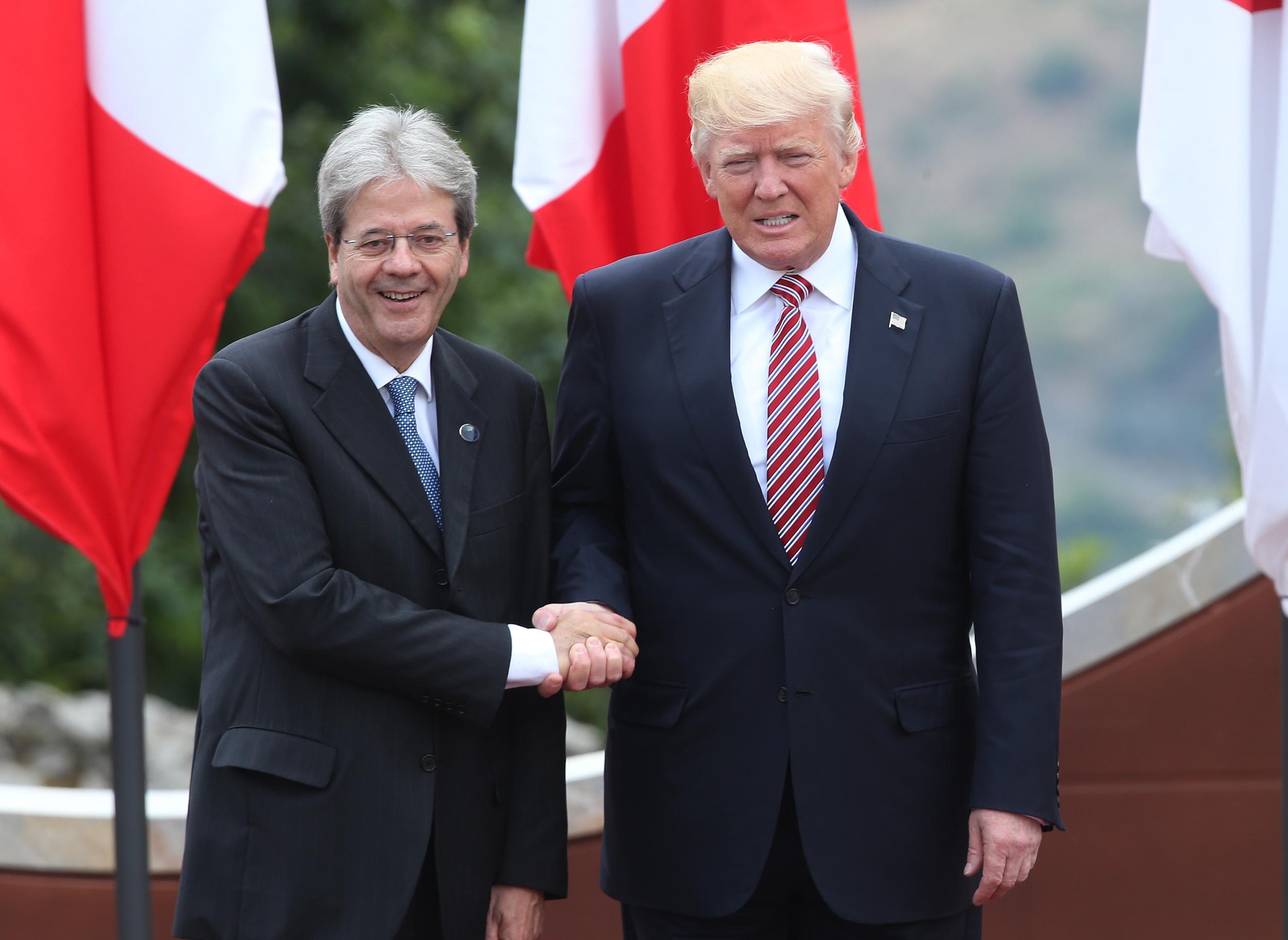Psychologists break down the mysteries of Donald Trump's handshake
The President's greeting returned to the spotlight at a recent Nato summit

Your support helps us to tell the story
From reproductive rights to climate change to Big Tech, The Independent is on the ground when the story is developing. Whether it's investigating the financials of Elon Musk's pro-Trump PAC or producing our latest documentary, 'The A Word', which shines a light on the American women fighting for reproductive rights, we know how important it is to parse out the facts from the messaging.
At such a critical moment in US history, we need reporters on the ground. Your donation allows us to keep sending journalists to speak to both sides of the story.
The Independent is trusted by Americans across the entire political spectrum. And unlike many other quality news outlets, we choose not to lock Americans out of our reporting and analysis with paywalls. We believe quality journalism should be available to everyone, paid for by those who can afford it.
Your support makes all the difference.Donald Trump’s handshakes have become something of an international curiosity – and now, psychologists have broken down the "tactical" move.
The president's unique grip raised eyebrows during his visit to a Nato summit last week, where he appeared to painfully twist the arm of French President Emmanuel Macron.
Ahead of the opening of the new Nato headquarters in Brussels, Mr Trump grabbed the French president’s arm hard enough to jerk him to the side. Mr Macron had to place his other hand on Mr Trump in order to spring free.
Florin Dolcos, a psychology professor at the University of Illinois, called it a “tactical move”.
“It goes down to asserting dominance,” Mr Dolcos told The Huffington Post. “Why he wants to do that? I don’t know. It looks, to me, like he is trying too hard.”
The President's fierce shake has made headlines in the past, starting with his grasp of Japanese Prime Minister Shinzo Abe’s hand. The grip lasted 19 seconds.
Later, Mr Trump almost jerked Supreme Court Justice nominee Neil Gorsuch off his feet with a handshake during a ceremony announcing his nomination.
Body language expert Darren Stanton previously told The Independent that the President's grip is "all about the assertion of power and control".
“Trump is saying, ‘This is my space, my time, you are the guest, my house rules apply,'" Mr Stanton said.
Some world leaders have started preparing for a handshake-showdown with the President. Canadian Prime Minister Justin Trudeau attracted attention for his notably strong, extended grip with Mr Trump when the two met in February.
Mr Macron even admitted to purposefully prolonging his grip with the President, as a show of strength.
“My handshake with him was not innocent,” Mr Macron said. “We need to show that we won’t make small concessions, even symbolic ones, while not over-hyping things either.”
Nothing, however, can prepare world leaders for another signature Trump move: ignoring the handshake altogether.
Mr Trump failed to heed calls to shake the hand of German Chancellor Angela Merkel when she visited the White House in March. (He says he didn’t hear them.)
At a meeting with Israeli President Benjamin Netanyahu this month, Mr Trump appeared to miss the president’s outstretched hand.
“It is another way of establishing rank, which is that he is the one initiating,” Mr Dolcos said of the move. “‘I’m not going in when you initiate. I’m probably ignoring it and then I’ll come back. This is now when we are doing this. Not when you initiate it.’”
Join our commenting forum
Join thought-provoking conversations, follow other Independent readers and see their replies
Comments